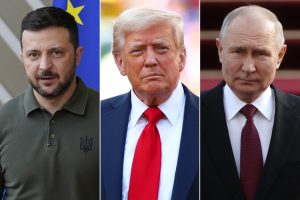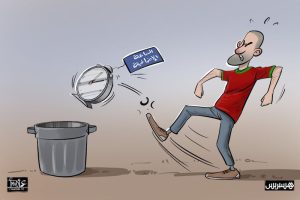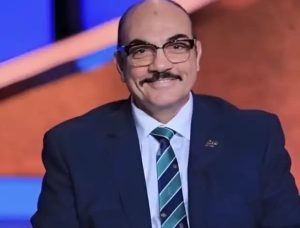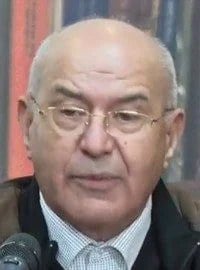Political parties occupy a central position in the national democratic construction; they are the lever that the constitution intended as a tool for mediation, organization, and the creation of alternatives. His Majesty King Mohammed VI, may God assist him, has emphasized in multiple speeches that parties are not merely organizational or electoral structures but institutions entrusted with serving citizens, preparing elites capable of meeting their expectations, and effectively contributing to the success of the country’s social and developmental project.
His Majesty consistently insists that parties must fully assume their roles in:
- Qualifying and renewing elites to ensure competence and credibility.
- Elevating party work to meet the challenges of the state and society.
- Rebuilding trust between citizens and politics through sincere and responsible practice.
- Participating in shaping and implementing the new development model as a strategic horizon for Morocco.
- Political representation: making the citizen’s voice heard in decision-making institutions.
- Organization and political socialization: transforming individuals into conscious political actors.
- Elite production: providing political and administrative leadership capable of management.
- Program building: formulating alternatives and guiding public policies.
- Representation has lost much of its legitimacy with the rise of participatory democracy and non-party social movements.
- Organization is no longer exclusive to parties but shared with social networks, civil society, and digital spaces.
- Elite production has become an internal bureaucratic mechanism that produces loyalty more than competence.
- Programs have become hostage to electoral marketing rather than strategies for change.
- On one hand, a demand to represent society within state institutions.
- On the other, being part of the state itself, operating according to its rules and under its umbrella.
- Rebuilding mediation legitimacy: strengthening internal democracy, renewing consultation mechanisms with citizens, and shifting from general public discourse to thematic discourse (education, environment, employment).
- Revolutionizing the organizational function: moving from “oratory” to “political knowledge,” integrating modern sciences (digitalization, artificial intelligence, data science) into political training.
- Transforming parties into policy laboratories: instead of being seasonal, they must become think tanks producing scientific knowledge on public policies linked to universities and research centers.
- Opening parties to the networked society: integrating youth and digital movements, and transitioning from “hierarchical organization” to “network organization” allowing flexible engagement.
- Politics as institutional representation to politics as daily social interaction.
- Politics as elite action to politics as collective participatory management.
- Politics as electoral programs to politics as global challenges (climate, artificial intelligence, migration).
However, the pressing question today is: how can parties renew their functions to meet both royal and societal expectations?
The world is undergoing profound transformations: declining participation, explosion of digital media, shrinking trust, rise of individualism, and changes in the nation-state itself. Here lies the crisis: parties seem to operate with the language of the past while society moves with the language of the future.
Theoretically, parties were established to:
But these functions are clearly eroding today:
In this sense, the crisis is not only one of party action but of the party logic itself as a mediation mechanism.
The core of the party crisis relates to what can be called dual representation:
This structural tension places the party in a gray area: it can no longer convince citizens it speaks for them, nor convince the state it is an effective tool for stability. The result: expanding political apathy and shifting the center of debate towards new forms of action (protest movements, civil initiatives, digital campaigns…).
To regain legitimacy, parties must redefine their function, not only by returning to traditional roles but by creating new functions inspired by the spirit of the age. Four renewal paths are proposed:
The debate on renewing party functions should not be limited to viewing them as institutions suffering temporary dysfunction but should be read in the context of a deeper transformation in the structure of politics itself. We are witnessing a transition from:
Today, parties face not only the choice of survival or extinction but the necessity to redefine their very existence. If they manage to renew their functions and rediscover their meaning, they will remain vital in democratic construction. Otherwise, politics will seek alternatives outside them, in social movements, digital spaces, and civil society.
Renewing party functions is not merely organizational modernization but a civilizational challenge that will determine the future shape of politics: will it remain hostage to inherited structures or open to a new horizon linking the state and society, the local and global, the real and digital?
In this sense, the expectations of His Majesty King Mohammed VI place parties before a historic responsibility: either to transform into a genuine propositional and organizational force contributing to the success of the developmental project and consolidating trust, or remain stagnant and lose the meaning and place of politics in citizens’ lives.













Recommended for you
Exhibition City Completes About 80% of Preparations for the Damascus International Fair Launch
Talib Al-Rifai Chronicles Kuwaiti Art Heritage in "Doukhi.. Tasaseem Al-Saba"
Unified Admission Applications Start Tuesday with 640 Students to be Accepted in Medicine
Egypt Post: We Have Over 10 Million Customers in Savings Accounts and Offer Daily, Monthly, and Annual Returns
His Highness Sheikh Isa bin Salman bin Hamad Al Khalifa Receives the United States Ambassador to the Kingdom of Bahrain
Al-Jaghbeer: The Industrial Sector Leads Economic Growth